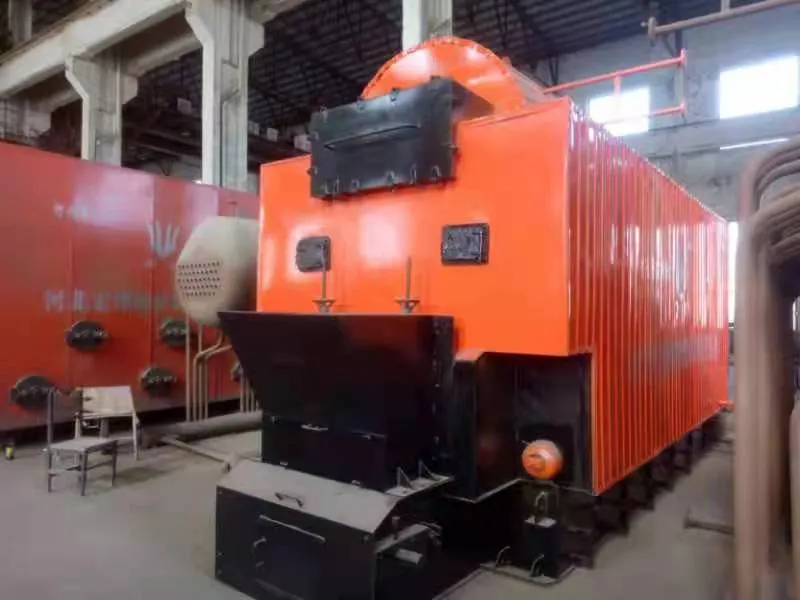
Nov . 09, 2024 12:47 Back to list
Understanding Operating Pressure for Hot Water Boilers and Its Importance in Efficient Performance
Understanding Hot Water Boiler Operating Pressure
Hot water boilers are essential components in many heating systems, providing effective and efficient heating for residential, commercial, and industrial settings. A crucial aspect of boiler operation is the operating pressure, which influences both performance and safety. In this article, we will explore the significance of hot water boiler operating pressure, factors affecting it, and the implications for system efficiency and safety.
What is Operating Pressure?
The operating pressure of a hot water boiler refers to the pressure of the water within the boiler system during operation. This pressure is typically measured in pounds per square inch (PSI) and should be maintained within specific parameters dictated by the boiler design and manufacturer’s specifications. Operating the boiler at the correct pressure is critical to ensure optimal performance and prevent damage to the system.
Importance of Proper Operating Pressure
1. Efficiency The efficiency of a hot water boiler is directly related to its operating pressure. If the pressure is too low, the boiler may not be able to produce enough heat to meet demand, leading to prolonged heating times and increased energy consumption. Conversely, excessively high pressure can lead to energy waste and strain on the system components.
2. Safety Operating any boiler at improper pressure levels can pose serious safety risks. High pressure can lead to dangerous situations such as boiler explosions or failures of safety valves. Maintaining the recommended operating pressure is crucial to ensure that all safety mechanisms function correctly, protecting both the equipment and individuals around it.
3. Longevity of Equipment Consistently operating at the correct pressure can also extend the lifespan of a boiler. Excessive strain on components due to high pressure can lead to premature wear and increased maintenance costs. By adhering to the manufacturer’s pressure guidelines, owners can mitigate such risks and reduce the likelihood of expensive repairs.
Factors Affecting Operating Pressure
Several factors can influence the operating pressure of a hot water boiler, including
hot water boiler operating pressure

- Temperature Settings The temperature at which the water is heated affects pressure. Higher temperatures result in increased pressure. It’s important to balance temperature settings with desired comfort levels and energy consumption.
- System Design The design of the heating system, including pipe sizes and layout, can impact how pressure is maintained. A well-designed system will promote consistent pressure throughout the system, while poor design can lead to pressure drops and fluctuations.
- Water Supply Conditions The quality and characteristics of the water supply also play a role. Hard water, for instance, can lead to scale buildup within the boiler, hindering heat transfer and potentially impacting pressure levels.
- Altitude Operating pressure requirements may also vary based on altitude. As altitude increases, atmospheric pressure decreases, which can affect the boiling point of water and, subsequently, the required operating pressure for efficient operation.
Monitoring and Maintenance
Regular monitoring of boiler pressure is essential for maintaining safe and efficient operation. Boiler owners should regularly check the pressure gauge and compare it with manufacturer specifications. If pressure consistently falls outside the recommended range, prompt maintenance is necessary to identify and rectify any underlying issues.
Routine maintenance is also vital in ensuring that all components, including pressure relief valves, pumps, and sensors, function correctly. This proactive approach helps prevent pressure-related issues and promotes optimal operation.
Conclusion
In conclusion, understanding and maintaining the correct operating pressure of hot water boilers is vital for safety, efficiency, and longevity. By keeping the pressure within recommended limits, owners can ensure their heating systems operate effectively while minimizing potential hazards and costs. Regular monitoring and maintenance are key strategies in achieving these goals, providing peace of mind and comfort in any heating environment.
-
High-Efficiency Commercial Oil Fired Steam Boiler for Industry
NewsJul.30,2025
-
High-Efficiency Biomass Fired Thermal Oil Boiler Solutions
NewsJul.30,2025
-
High Efficiency Gas Fired Thermal Oil Boiler for Industrial Heating
NewsJul.29,2025
-
High-Efficiency Gas Fired Hot Water Boiler for Sale – Reliable & Affordable
NewsJul.29,2025
-
High Efficiency Biomass Fired Hot Water Boiler for Industrial and Commercial Use
NewsJul.29,2025
-
High-Efficiency Biomass Fired Hot Water Boiler for Industrial Use
NewsJul.28,2025
Related PRODUCTS






















